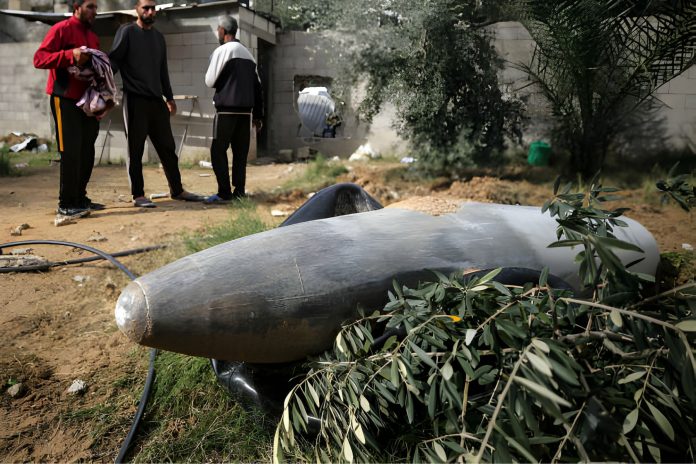The ongoing conflict in Israel has persisted for over two months now showing no signs of a resolution. It all began as a series of clashes between forces and Palestinian militants in Jerusalem. It has since escalated into a full-blown war resulting in the loss of hundreds of lives, thousands injured and millions displaced.
Moreover, this war in Israel has triggered violence and unrest globally and regionally as different nations and groups have taken sides extending support or criticizing the actions of those involved.
In this article, we aim to provide you with updates on the situation in Israel’s war zone and its far-reaching impact on both the region and the world, at large.
The Regional and Global Implications of the War in Israel
The conflict in Israel has had an impact not only on the lives of Israelis and Palestinians but also on the stability and security of the region and the world at large. It has attracted involvement from global actors each with their interests and agendas regarding the outcome of the war.
- Several countries, including Iran, Turkey, and Qatar have provided military and diplomatic support to Hamas. On the other hand, countries like Egypt, Jordan, and Saudi Arabia have attempted to mediate a ceasefire due to concerns about spillover effects that could threaten their security and stability.
- Diplomatic efforts involving the United States, the European Union, and the United Nations have been underway to bring an end to the violence. These organizations have also expressed concern regarding both the crisis resulting from this conflict as well, as violations of human rights and international law.
- The global economy and trade have also been affected by the war as it has caused disruptions in the supply of oil and gas leading to increased energy prices. Additionally, consumer confidence has declined, hampering the recovery from the COVID-19 pandemic.
- Moreover, the war in Israel has extended beyond the borders of the two warring parties making it a conflict, without boundaries.
Read More: The Controversial Journey of Donald Trump Jr.: Business, Politics and Twitter
The Humanitarian Crisis in Gaza and the International Response
The ongoing conflict in Israel has resulted in a severe humanitarian crisis in the Gaza Strip, home to over two million Palestinians who have been subjected to a blockade imposed by Israel. According to the United Nations, the war has claimed the lives of at least 11,070 individuals, injured over 50,000 others, and forced more than one million people in Gaza to flee their homes.
The lack of electricity, water, food, medicine, and fuel has created a dire situation for civilians, who face the risk of disease, hunger, and trauma. The war has also damaged or destroyed thousands of homes, schools, hospitals, and other infrastructure, leaving many people homeless and without basic services.
The international community has been trying to address the humanitarian crisis in Gaza but has faced many challenges and obstacles. The UN has launched an emergency appeal for $1.6 billion to provide humanitarian aid to Gaza but has only received about half of the funding so far. The UN has also called for an immediate humanitarian ceasefire, but the US has vetoed a UN Security Council resolution that would have endorsed it.
The US, which is Israel’s main ally and arms supplier, has said that it supports Israel’s right to self-defense and that any ceasefire must ensure Israel’s security and prevent Hamas from rearming. The US has also pledged $110 million in humanitarian assistance to Gaza but has faced criticism for its role in the conflict.
Other countries and organizations have also tried to help the people of Gaza, but have faced difficulties in delivering the aid. Egypt, which shares a border with Gaza, has opened its Rafah crossing to allow some injured Palestinians and foreign nationals to leave the territory and has also sent some medical and food supplies.
In addition, Egypt has implemented limitations on the transportation of individuals and goods across the border, citing security reasons and its animosity towards Hamas. Turkey and Qatar, which are allies of Hamas, have also sent some aid to Gaza, but have accused Israel of blocking their access. The International Committee of the Red Cross (ICRC) and other humanitarian agencies have also faced challenges in reaching the people in need, due to the ongoing violence, the lack of coordination, and the damage to the roads and bridges.
The humanitarian crisis in Gaza is likely to worsen as the war continues, and as the winter season is on. The UN has warned that Gaza is on the brink of a “large-scale humanitarian disaster” that could have long-term consequences for the region and the world. The UN has also urged all parties to respect international humanitarian law and to protect civilians and civilian infrastructure from harm. The UN has also stressed the need for a political solution to the conflict, and to address the root causes of the Israeli-Palestinian dispute.
The war in Israel and Gaza is not only a war of weapons, but also a war of narratives, values, and visions for the future.
Bottom Line
The war in Israel and Gaza is one of the most complex and protracted conflicts in the world, with far-reaching implications for the region and the world. The war has caused immense human suffering, political instability, economic disruption, and social unrest.
It has also exposed the deep divisions and tensions among the international community, as well as the limitations and challenges of diplomacy and humanitarian action. This is not only a war of weapons, but also a war of narratives, values, and visions for the future. The war in Israel and Gaza needs more than a ceasefire, it needs a lasting peace.





